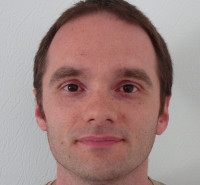Finance, Investment & Risk Management
Economic Loss & Disaster Risk Financing
Sustainable Finance
Post-Doctoral Fellowships
Poland
2016.01.31
Protecting the Power Supply with Better Risk Management
Dr. Wawrzyniak aims for a more comprehensive quantification of risk. A power grid can function in various states, but some of these are safer than others. The risk associated with each potential condition that deviates from normal needs to be assessed, but quantifying the probability of each undesirable event and the cost of its consequences is not an easy task. Dr. Wawrzyniak’s model will tackle this in a novel way, using statistical analyses capable of capturing dynamic probabilities that change as a cascading power failure progresses. The innovative system should allow for continuous assessment of the risk, which, in turn, could provide extra information on the gravity of the situation and the time period within which action must be taken. “In short,” Dr. Wawrzyniak summarizes, “if we know how to quantify the risk, we should also be able to estimate how fast we have to return to the normal state and how to optimize the cost related to the necessary actions.”
The model he is building should be easily applicable to other regions’ power grids and to different types of data. For instance, it could be used to estimate the probability of a failure in the power system given certain weather conditions. This could be important for energy infrastructure around the world that is facing new challenges from increasingly intense weather events. Dr. Wawrzyniak’s tool could prove vital for coordinated risk management in power production and supply, and the stability of our energy systems, so often taken for granted.
Scientific title: Development Of Methodology Assessing The Risk Of Remedial Actions In Transmission Systems And Optimizing Them
To add or modify information on this page, please contact us at the following address: community.research@axa.com

Karol
WAWRZYNIAK
Institution
National Centre for Nuclear Research
Country
Poland
Nationality
Polish
Related articles
Finance, Investment & Risk Management
Societal Challenges
Microfinance & Financial Inclusion
Emerging Market
Inequality & Poverty
Joint Research Initiative
China
2021.04.19
Understanding the Financial Lives of Low Income Households in China
Leveraging financial diaries research methodology, this joint initiative aims to provide actionable insights about the financial lives of low-income households... Read more

Xiugen
MO
Chinese Academy of Financial Inclusion
Finance, Investment & Risk Management
Pandemics & Infectious Diseases
Economics & Global Development
Covid-19
Financial Markets, Modelling & Pricing
Economic Loss & Disaster Risk Financing
Insurance & Risk Management
AXA Award
France
2020.08.31
An Extreme Value Model For the Analysis of the COVID-19 Pandemic and Its Impact, and the Mitigation of Future Related Crises
The second strand of work will harness the vast wealth of functional data at our disposal to construct estimators for... Read more

Gilles
STUPFLER
